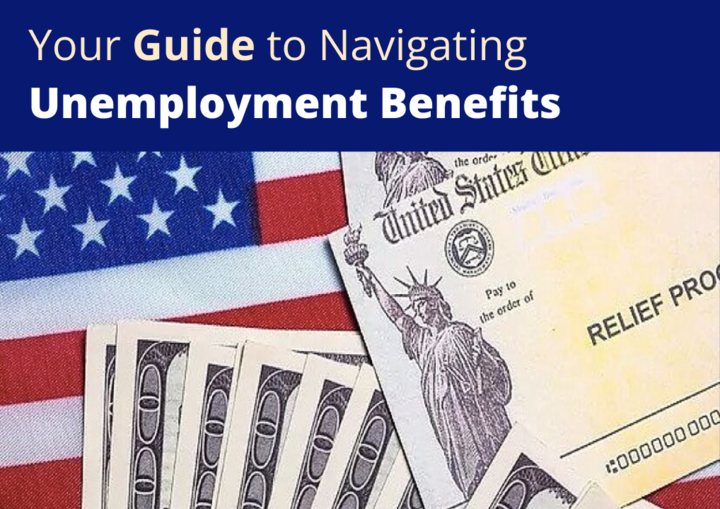Auto warranty plans serve as a safety net for vehicle owners, providing financial protection against unexpected repairs and mechanical failures. These plans can be broadly categorized into two types: manufacturer warranties and extended warranties. Manufacturer warranties, often included with the purchase of a new vehicle, cover defects in materials and workmanship for a specified period or mileage.
Extended warranties, on the other hand, are purchased separately and can extend coverage beyond the manufacturer’s warranty, offering peace of mind for drivers who wish to safeguard their investment for a longer duration. The intricacies of auto warranty plans can be daunting. They often come with various terms, conditions, and exclusions that can significantly impact the level of protection offered.
For instance, some plans may cover only specific components of the vehicle, while others might provide comprehensive coverage that includes roadside assistance and rental car reimbursement. Understanding these nuances is crucial for vehicle owners to make informed decisions about which plan best suits their needs. Additionally, the landscape of auto warranties is continually evolving, with new providers entering the market and existing ones updating their offerings to remain competitive.
Key Takeaways
- Auto warranty plans provide coverage for vehicle repairs and maintenance after the manufacturer’s warranty expires.
- Assess your vehicle’s needs by considering its age, mileage, and potential for future repairs.
- Research different warranty providers to compare their reputation, coverage options, and customer service.
- Compare coverage options to ensure that the plan meets your specific needs and budget.
- Evaluate customer reviews and ratings to gauge the overall satisfaction and reliability of the warranty provider.
Assessing Your Vehicle’s Needs
Understanding Your Vehicle’s Profile
For example, a brand-new vehicle from a reputable manufacturer may not require an extended warranty immediately, as it is still covered by the manufacturer’s warranty.
Considering Your Driving Habits
Conversely, an older vehicle with high mileage may benefit from an extended warranty to mitigate the risk of costly repairs. Additionally, consider your driving habits and how they may influence your vehicle’s wear and tear. If you frequently take long road trips or drive in harsh conditions, your vehicle may be more susceptible to mechanical issues.
Identifying Potential Areas of Concern
In such cases, opting for a more comprehensive warranty that covers a broader range of components could be advantageous. Furthermore, understanding the common issues associated with your vehicle’s make and model can help you identify potential areas of concern that a warranty should address.
Researching Different Warranty Providers
Once you have a clear understanding of your vehicle’s needs, the next step is to research different warranty providers.
The market is filled with numerous companies offering various plans, each with its own set of benefits and drawbacks.
Start by compiling a list of reputable providers known for their reliability and customer service.
Look for companies that have been in business for several years and have established a solid reputation within the industry. In addition to reputation, consider the range of plans offered by each provider.
Some companies specialize in specific types of vehicles or coverage levels, while others may offer a more extensive array of options.
It is also beneficial to check if the provider has partnerships with a network of repair shops or dealerships, as this can affect where you can get your vehicle serviced under the warranty. Online resources such as consumer reports and automotive forums can provide valuable insights into the experiences of other customers with various warranty providers.
Comparing Coverage Options
With a list of potential warranty providers in hand, it’s time to compare their coverage options meticulously. Not all warranties are created equal; some may offer bumper-to-bumper coverage that includes nearly every component of the vehicle, while others may focus primarily on powertrain components like the engine and transmission. Understanding what is included in each plan is crucial for making an informed choice.
Moreover, pay attention to any exclusions or limitations that may apply to each warranty. For instance, some plans may not cover wear-and-tear items such as brake pads or tires, which could lead to unexpected out-of-pocket expenses down the line. Additionally, consider whether the warranty includes benefits like roadside assistance or rental car reimbursement during repairs.
These added features can enhance the overall value of a warranty plan and provide additional peace of mind.
Evaluating Customer Reviews and Ratings
Customer reviews and ratings are invaluable resources when evaluating auto warranty providers. They offer real-world insights into how well a company fulfills its promises and handles claims. Look for reviews on independent websites rather than relying solely on testimonials found on the provider’s website, as these may be selectively curated to present a favorable image.
When reading reviews, pay attention to recurring themes or issues mentioned by customers. For example, if multiple reviews highlight difficulties in getting claims approved or delays in service, this could be a red flag regarding the provider’s reliability. Conversely, positive reviews that emphasize excellent customer service and prompt claims processing can indicate a trustworthy company.
Additionally, consider checking ratings from organizations like the Better Business Bureau (BBB) or Consumer Affairs to gauge overall customer satisfaction.
Reviewing Terms and Conditions
Understanding the Coverage Details
This document outlines the specifics of what is covered, what is excluded, and any obligations you must fulfill as the policyholder. Pay close attention to details such as deductibles, claim limits, and any requirements for regular maintenance that must be adhered to in order to keep the warranty valid.
Avoiding Unpleasant Surprises
Understanding the fine print can prevent unpleasant surprises later on. For instance, some warranties may require you to use specific repair shops or service centers for covered repairs; failing to do so could void your coverage. Additionally, look for clauses related to cancellation policies and transferability if you plan to sell your vehicle before the warranty expires.
Navigating Potential Issues
Knowing these details upfront will help you navigate any potential issues that may arise during your ownership experience.
Getting Quotes and Pricing Information
Once you have narrowed down your options based on coverage and customer feedback, it’s time to obtain quotes from different providers. Pricing can vary significantly based on factors such as the type of coverage selected, the age and mileage of your vehicle, and even your location. Requesting quotes from multiple providers allows you to compare costs directly and identify which plans offer the best value for your needs.
When reviewing quotes, consider not only the price but also what is included in each plan. A lower-priced warranty may seem appealing at first glance but could lack essential coverage components that could lead to higher costs in repairs later on. Additionally, inquire about payment options; some providers offer flexible payment plans that allow you to spread out the cost over time rather than paying a lump sum upfront.
Making an Informed Decision
After conducting thorough research and gathering all necessary information, it’s time to make an informed decision regarding your auto warranty plan. Weigh all factors carefully—coverage options, customer reviews, terms and conditions, and pricing—to determine which plan aligns best with your needs and budget. It may also be helpful to discuss your options with trusted friends or family members who have experience with auto warranties.
Ultimately, choosing an auto warranty is about finding peace of mind in knowing that you are protected against unforeseen repair costs. By taking the time to understand your vehicle’s needs and thoroughly researching available options, you can select a plan that not only fits your financial situation but also provides comprehensive coverage tailored to your driving habits and lifestyle. Making an informed decision today can save you from potential headaches tomorrow as you navigate the complexities of vehicle ownership.
FAQs
What is an auto warranty plan?
An auto warranty plan is a service contract that provides coverage for the repair or replacement of certain vehicle components after the manufacturer’s warranty has expired.
What does an auto warranty plan cover?
Auto warranty plans can vary in coverage, but they typically cover the cost of repairs or replacements for major vehicle components such as the engine, transmission, and electrical systems.
How do I choose the best auto warranty plan?
When choosing the best auto warranty plan, consider factors such as coverage options, deductible amounts, claim process, reputation of the provider, and cost of the plan.
What are the different types of auto warranty plans?
There are typically two types of auto warranty plans: extended warranties, which provide coverage after the manufacturer’s warranty expires, and vehicle service contracts, which are sold by third-party providers and offer similar coverage.
Are there any limitations to auto warranty plans?
Auto warranty plans may have limitations on coverage, such as exclusions for pre-existing conditions, wear and tear, or certain vehicle modifications. It’s important to carefully review the terms and conditions of the plan before purchasing.







